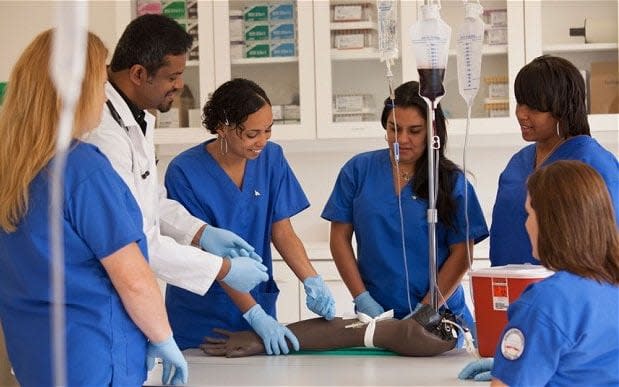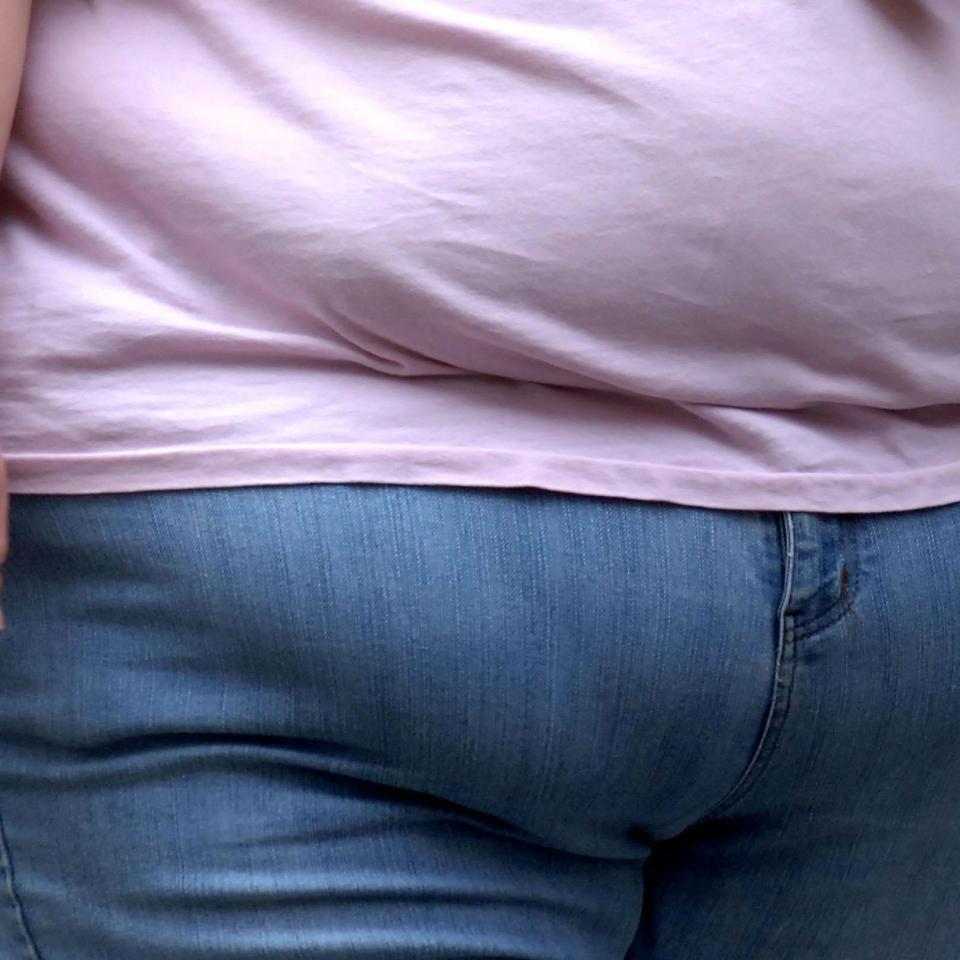Reliance on overseas workers could threaten future of NHS, peers warn

The NHS is far too reliant on overseas workers and staff shortages after Brexit threaten the future of the health service, a Lords committee has warned.
Peers said a “shocking” lack of long-term planning in the past could mean hospitals and services for the elderly become “overwhelmed” by demand.
The House of Lords select committee on the Long-term Sustainability of the NHS said a “short-sighted” approach by successive Governments had put services in jeopardy.
“Our NHS, our ‘national religion’ is in crisis and the adult social care system is on the brink of collapse,” its report warns.
'We are concerned by the absence of any comprehensive national long-term strategy to secure the appropriately skilled, well-trained and committed workforce that the health and care system will need over the next 10 to 15 years'
House of Lords select committee on the Long-term Sustainability of the NHS
“We are concerned by the absence of any comprehensive national long-term strategy to secure the appropriately skilled, well-trained and committed workforce that the health and care system will need over the next 10 to 15 years.”.
“In our view this represents the biggest internal threat to the sustainability of the NHS”.
A succession of Governments had failed to ensure enough recruitment of homegrown workers, leaving health and care services far too dependent on foreign staff, peers said.
“Workforce strategy has been poor with too much reliance on overseas recruitment. The government should outline its strategy for ensuring that a greater proportion of the health and social care workforce comes from the domestic labour market and should report on progress against this target,” the committee said.
Peers urged the Government to take steps to reassure overseas-trained staff that they would be able to work here after Brexit.
The committee also demanded radical efforts to tackle Britain’s lifestyles, in order to reduce spiralling demand for healthcare.
Peers called for a “hard hitting” nationwide campaign against obesity - similar to the 1980s fight against HIV.
The chairman of the committee, Lord Patel, said the public needed to wake up to the threat caused by growing waistlines, in the same way that the “Don’t Die of Ignorance” messsage was driven home.
“We need to have a far more hard-hitting campaign about obesity, it is time to be far more hard-hitting, in the way we were with Aids, to make sure the public takes more responsibility for themselves," he said.

The report warns that public confidence in the NHS is the worst on record - with more than 55 per cent expecting it to deteriorate, amid a “culture of short-termism”.
And it says “serious consideration” should be given to introducing an insurance-based scheme, starting in middle age, to cover care costs in older age, learning from models used in Japan and Germany.
Janet Davies, chief executive of the Royal College of Nursing, said pay restrictions were pushing nurses out of the service.
“One in three nurses will retire in the next ten years and, unless a meaningful strategy is set, the Government is allowing a time-bomb to tick underneath the profession,” she said.
Candace Imison, from the Nuffield Trust said: “For some time now we have been warning that the staffing crisis facing the NHS is as serious as its funding problems.
"But whereas the financial difficulties can largely be solved by increased funding, the loss of the experienced, highly trained staff who are currently leaving the health service in droves cannot be easily reversed.
“Shortages of staff have been exacerbated by years of bad planning, and are set to be worsened by the UK’s imminent departure from the European Union.”
Last month the Health Secretary detailed plans to expand the supply of home-grown doctors in the years after Brexit, with an extra 25 per cent medical training places.
In 2015, four in ten new entrant to nursing in the UK trained abroad, the vast majority from within the EU. Six years before, overseas nurses made up just one in 10 new entrants .
Since the EU referendum, the number of nurses registering to work in the UK has dropped sharply. Just 101 nurses and midwives from other European nations joined the register to work in the UK in December - a drop from 1,304 in July.
A Department of Health spokesman said: “We are totally committed to an NHS, free at the point of use, providing world-class care - and we agree that means taking decisions to ensure the sustainability of the service in future.
"That's why we are already expanding the number of medical training places by 25 per cent to ensure we have all the doctors we need, investing in social care and working on a long-term funding solution in a green paper, and putting £325 million into local transformation plans to improve services, with more to follow in the autumn."

 Yahoo News
Yahoo News 